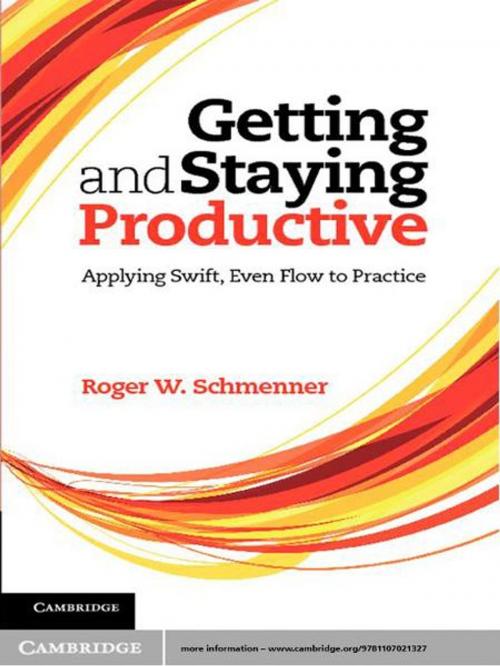Getting and Staying Productive
Applying Swift, Even Flow to Practice
Business & Finance, Management & Leadership, Management, Nonfiction, Health & Well Being, Psychology| Author: | Professor Roger W. Schmenner | ISBN: | 9781139234641 |
| Publisher: | Cambridge University Press | Publication: | March 8, 2012 |
| Imprint: | Cambridge University Press | Language: | English |
| Author: | Professor Roger W. Schmenner |
| ISBN: | 9781139234641 |
| Publisher: | Cambridge University Press |
| Publication: | March 8, 2012 |
| Imprint: | Cambridge University Press |
| Language: | English |
All kinds of processes – those that make things or deliver services or operate companies – can be made more productive, and society's continued well-being requires it. This book is for all those with a stake in improving how companies run. It introduces the concept of 'swift, even flow' and explains how that concept stands behind popular business tools such as 'lean' principles and Six Sigma. More than that, it shows how swift, even flow can lead to deep, strategic insights and fresh ideas. The book uses many examples, both contemporary and historic, and 16 case studies from all sorts of business situations to demonstrate how swift, even flow can be applied. Services and manufacturing, supply chains and individual operations, product development and outsourcing, strategy and tactics, hourly workers and top level executives – all benefit from this fundamental re-thinking of what it takes to become productive.
All kinds of processes – those that make things or deliver services or operate companies – can be made more productive, and society's continued well-being requires it. This book is for all those with a stake in improving how companies run. It introduces the concept of 'swift, even flow' and explains how that concept stands behind popular business tools such as 'lean' principles and Six Sigma. More than that, it shows how swift, even flow can lead to deep, strategic insights and fresh ideas. The book uses many examples, both contemporary and historic, and 16 case studies from all sorts of business situations to demonstrate how swift, even flow can be applied. Services and manufacturing, supply chains and individual operations, product development and outsourcing, strategy and tactics, hourly workers and top level executives – all benefit from this fundamental re-thinking of what it takes to become productive.















